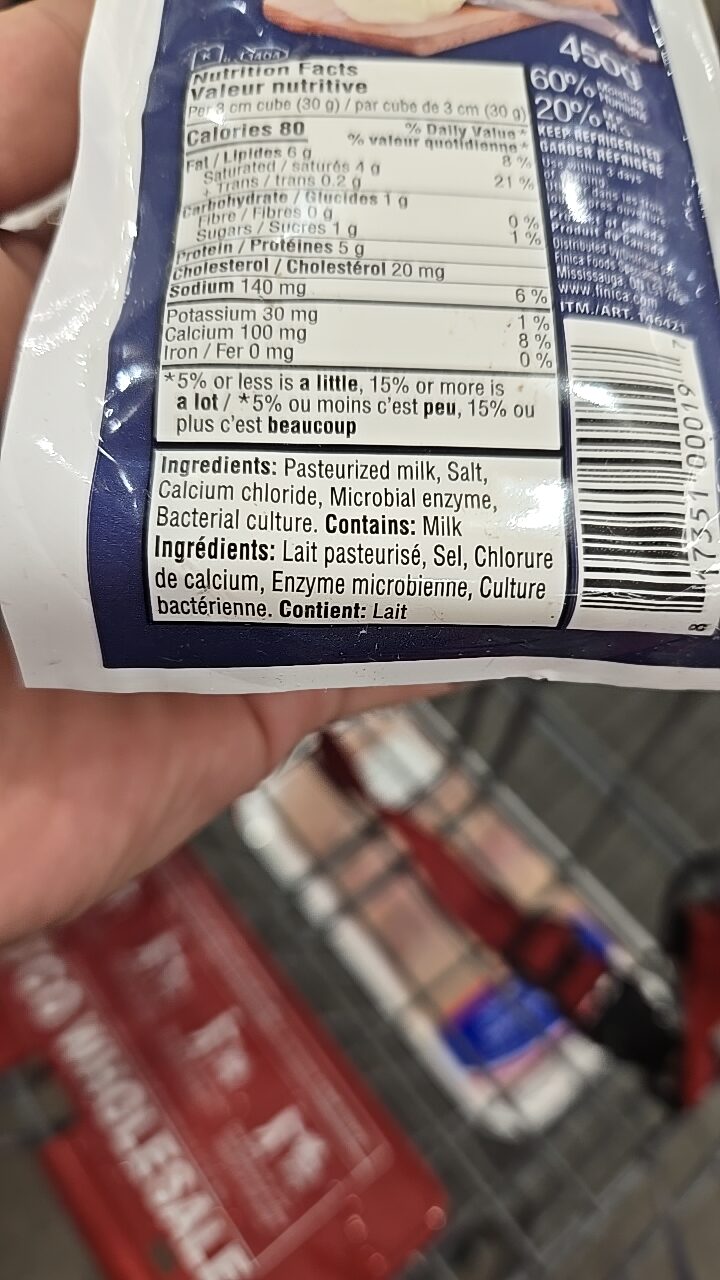
Barcode: 817351000197
unknown
HALAL
📝 Reason: All ingredients in this product are Halal or synthetic/vegetarian in origin, with no Haram or doubtful components or ECodes found as per the provided lists. Milk and salt are pure ingredients; calcium chloride is a safe food additive; microbial enzyme and bacterial culture are generally Halal unless grown on animal-based media, which is not indicated in this product. Reference: Quran 5:3, IFANCA.
🏷️ Category: Cheese
📄 Certificates: Vegetarisch
Ingredients:
Details
Understanding the Halal Status of this Cheese Product
If you are concerned about the Halal status of cheese products, you will find this specific cheese intriguing. According to our research, this cheese, identified by its unique barcode 817351000197, is unquestionably Halal. In this article, we will explore the ingredients, clarify their Halal status, and provide you with the essential information to make informed dietary choices.
Ingredients Breakdown
Let’s take a closer look at the ingredients of this cheese:
- Pasteurized Milk
- Salt
- Calcium Chloride
- Microbial Enzyme
- Bacterial Culture
1. Pasteurized Milk
Pasteurized milk is the heated and processed milk derived from cows. It is essential to note that pasteurization does not alter its Halal status, provided it is free from contamination with Haram substances. Thus, pasteurized milk is considered Halal, making it safe for Muslim consumers.
Read more about the Halal status of milk here.
2. Salt
Salt is a mineral that is naturally occurring and does not have any Haram or doubtful components. Its Halal status is universally accepted, making it safe to consume in all forms.
Find more about salt’s Halal status.
3. Calcium Chloride
Calcium chloride is a mineral salt, often sourced from natural brine or produced synthetically. Its usage in food processing poses no Halal concerns, reaffirming that this ingredient is acceptable for Halal consumption.
Learn more about calcium chloride here.
4. Microbial Enzyme
Microbial enzymes are derived primarily from non-animal sources like bacteria or fungi. The Halal status of these enzymes can sometimes be ambiguous, but they are generally considered Halal if not grown on animal-based media. In the absence of such information regarding this specific cheese, we can conclude its Halal status is intact.
Explore more about microbial enzymes and their Halal status.
5. Bacterial Culture
Bacterial cultures are used widely in food preparation, particularly in dairy products. These cultures are usually fermented from plant or synthetic sources and hold a Halal designation, assuming they don’t utilize animal derivatives during cultivation.
Find out more about bacterial cultures here.
Overall Halal Assurance
The combined analysis of these ingredients confirms that there are no Haram or questionable components present in this cheese product, making it suitable for consumption for all Halal observers. The certification of this product further strengthens its credibility, as it is recognized as a vegetarian product, affirming it is aligned with Halal dietary standards.
Conclusion
In summary, consumers interested in Halal cheese options can confidently choose this product. Thanks to the pure nature of its ingredients, reliable sources attest to its Halal status, and it meets the preferences of those looking for vegetarian and Halal-compliant foods. Make sure to stay informed about your dietary choices by choosing products like this one that promote healthy and Halal living.
